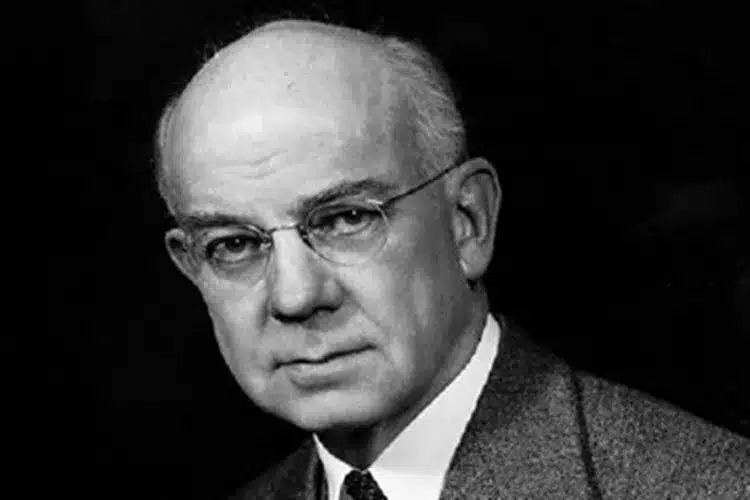Edward Calvin Kendall: Exploring the Wonders of Hormones and Nobel Laureate

Edward Calvin Kendall (8 March 1886 – 4 May 1972) was an American chemist. He shared the Nobel Prize in Physiology or Medicine in 1950 with Philip S. Hench and Tadeusz Reichstein for their discoveries concerning hormones of the adrenal cortex.
Life and Career
He was born on 8 March 1886, in South Norwalk, Connecticut, United States. He earned his Bachelor of Science degree in 1908 from Columbia University and a Master of Science degree in Chemistry the next year. Then, he got his Ph.D. in biochemistry from the University of Pittsburgh in 1910.
His career started as a chemist at Parke, Davis, and Company where he worked on thyroid extracts. His job was to isolate thyroid hormones. In 1911 he moved to the new chemical pathology lab at St. Luke’s Hospital in New York City to continue his research. In 1914, he was appointed Head of the Biochemistry Section at the Mayo Foundation’s Graduate School. He became Director of the Division of Biochemistry there the next year and Professor of Physiological Chemistry after that.
He spent most of his career at the Mayo Clinic in Rochester, Minnesota, where he worked on the isolation and purification of hormones produced by the adrenal cortex, a small gland located on top of the kidneys. He studied the hormones of the adrenal cortex in the 1930s, so he could use their extracts of them to help certain diseases. In collaboration with Hench, he discovered cortisone, an adrenal cortex hormone, had anti-inflammatory properties and could be used to treat rheumatoid arthritis. He also discovered the hormone aldosterone, which regulates salt and water balance in the body. He died on 4 May 1972 in Princeton, New Jersey, United States
Award and Legacy
He received the Nobel Prize in Physiology or Medicine in 1950 along with Philip S. Hench and Tadeusz Reichstein for their discoveries concerning hormones of the adrenal cortex. He received many other honors and awards for his contributions to biochemistry and medicine, including the National Medal of Science in 1966.
Observer Voice is the one stop site for National, International news, Sports, Editor’s Choice, Art/culture contents, Quotes and much more. We also cover historical contents. Historical contents includes World History, Indian History, and what happened today. The website also covers Entertainment across the India and World.
Follow Us on Twitter, Instagram, Facebook, & LinkedIn

